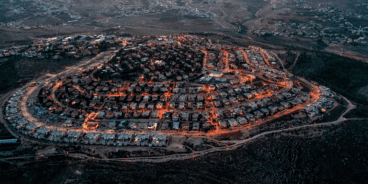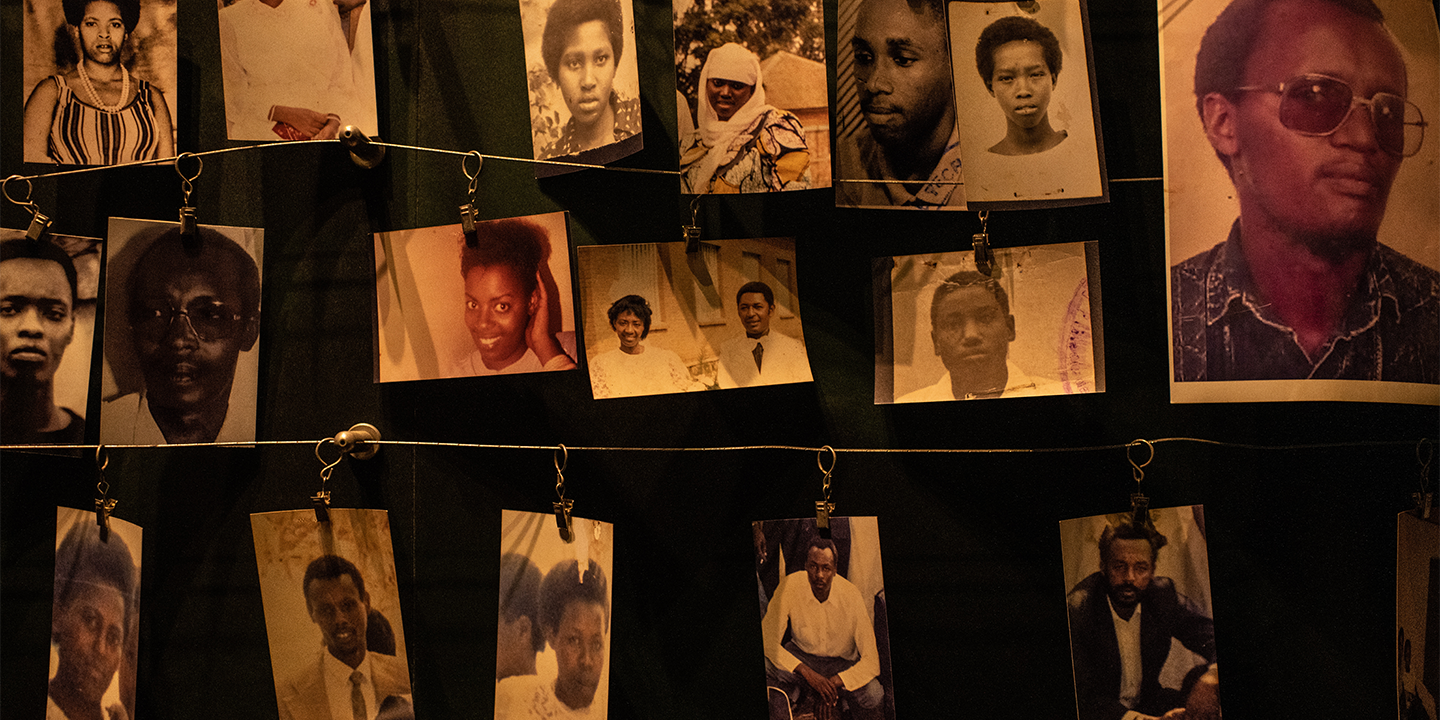

Atrocity Alert No. 389: Genocide Prevention and Awareness Month, Myanmar (Burma) and North Korea
Atrocity Alert is a weekly publication by the Global Centre for the Responsibility to Protect highlighting situations where populations are at risk of, or are enduring, mass atrocity crimes.
GENOCIDE PREVENTION AND AWARENESS MONTH
Each year during April we solemnly observe Genocide Prevention and Awareness Month, marking the grim anniversaries of the start of several genocides in the past century, as well as honoring all the victims and survivors of these past atrocities. These include the beginnings of the Armenian genocide, the siege of Sarajevo and the “Khmer Rouge” seizing power in Cambodia. Throughout April the liberation of several major Nazi concentration camps during 1945 are also commemorated.
This Sunday, 7 April, marks 30 years since the start of the genocide against the Tutsi in Rwanda. The official three-month remembrance period marks the time between April and July 1994 when approximately one million Rwandans were murdered. Despite clear and credible warnings from those within Rwanda, the UN and its member states failed to take timely and decisive action to prevent the impending genocide. Reflecting upon the 30th anniversary, UN Secretary-General António Guterres said, “Today, around the world, the darkest impulses of humanity are being awakened once more by the voices of extremism, division and hate. To those who would seek to divide us, we must deliver a clear, unequivocal and urgent message: never again.”
As we commemorate yet another anniversary, the international community continues to fall woefully short in responding to crises where populations are facing indescribable devastation and atrocities, all too often due to partisan political interests.
On 25 March the UN Special Rapporteur on the situation of human rights in the Palestinian territories occupied since 1967 concluded in a new report that since 7 October 2023 Israel has committed at least three of the constitutive acts of genocide in Gaza, and that statements made by high-level Israeli military and government officials are evidence of genocidal intent. The Special Rapporteur’s report was released two months after the International Court of Justice (ICJ) issued legally binding provisional measures ordering Israel to prevent acts of genocide and days before the ICJ issued a new order calling on Israel to ensure the “unhindered provision” of basic services and humanitarian aid to Palestinians in Gaza. Despite these measures, Israel’s bombardment and siege tactics on Gaza continue and its ongoing obstruction of the entry and provision of life-saving aid has resulted in conditions where famine is imminent or likely already underway.
This also includes populations in China, where the government is perpetrating possible acts of genocide while systematically persecuting the ethnic Uyghur community, as well as other predominantly Muslim and/or Turkic groups. In Sudan, where conflict broke out nearly a year ago, non-Arab communities in Darfur are at risk of genocide as a result of ethnically motivated killings. Severe violations of universal human rights and the risk of atrocity crimes persists for the Rohingya population, against whom the Myanmar (Burma) military committed genocide, crimes against humanity and war crimes with impunity.
These anniversaries should serve as reminders from history that the world must no longer tolerate political indifference and inaction whenever and wherever populations face an imminent risk of mass atrocity crimes. Genocide and other atrocities are preventable if warning signs are taken seriously and followed by early action. Governments and international civil society should use this month of commemoration to understand existing risks to vulnerable populations, and to assess our collective capacity to prevent would-be perpetrators from harnessing fear to incite further mass atrocity crimes and identity-based conflict. All states should also assess how they uphold their solemn commitment to “never again” for those around the world who remain at risk of, or are currently facing, these unconscionable crimes.
ESCALATING ABUSES AGAINST THE ROHINGYA IN MYANMAR’S RAKHINE STATE
On 18 March an airstrike by Myanmar’s military junta killed at least 20 civilians, half of whom were children, in the predominantly Rohingya village of Thar Dar, near Minbya in Rakhine State. Witnesses say there was no fighting around the town at the time of the bombing. According to Radio Free Asia, bombings in seven areas of Rakhine State killed at least 70 civilians in the first three weeks of March.
The recent aerial attacks in Rakhine State are part of a marked escalation in violence against civilians in areas where the junta has lost control since ethnic resistance organizations launched Operation 1027. From 1 November to 8 March the Armed Conflict Location & Event Data Project documented at least 588 airstrikes launched by the junta across the country. Targeted attacks on civilians are prohibited under international law and may amount to war crimes and crimes against humanity.
In Rakhine State, civilians were targeted in 34 percent of the strikes. The UN Special Rapporteur on the situation of human rights in Myanmar, Tom Andrews, said that the Rohingya community are “particularly hard hit” by the indiscriminate bombings and stressed that “unlike most in Myanmar, the Rohingya are prohibited from moving to safety,” referring to the movement restrictions that confine Rohingya to squalid camps and villages in Rakhine State. The Rohingya have long been persecuted by successive government systems in Myanmar, culminating in the 2017 genocide and mass forced displacement of at least 740,000 Rohingya to Bangladesh.
While addressing the UN Human Rights Council on 20 March, Special Rapporteur Andrews warned of a disturbing new abuse facing the Rohingya – forced military conscription. “Now, the junta is trying to force young Rohingya to do the unfathomable – join the very military that committed genocide against their community,” Special Rapporteur Andrews said.
Reports have also emerged of the junta intentionally stoking inter-communal conflict between the ethnic Rakhine and the Rohingya by orchestrating Rohingya protests against the Arakan Army, an ethnic Rakhine armed group. Junta-run media, including propaganda social media channels, reportedly posted a video and photos of hundreds of Rohingya protesters. Farhan Haq, Deputy Spokesperson for the UN Secretary-General, said, “The Secretary-General calls on all parties to prevent further incitement of communal tensions,” as the conflict in Rakhine State is “exacerbating pre-existing vulnerabilities and discrimination.”
The Global Centre for the Responsibility to Protect’s Myanmar expert, Sarah Hunter, stressed, “The international community has repeatedly failed the Rohingya and the people of Myanmar. This failure must end now. Member states should immediately coordinate sanctions to more effectively cut off the funds and jet fuel used by the junta to commit relentless atrocities in Rakhine state and beyond.”
VETO BY RUSSIA BRINGS AN END TO UN PANEL OF EXPERTS MONITORING DPRK SANCTIONS
On 28 March Russia vetoed a UN Security Council (UNSC) resolution for the renewal of the mandate of the Panel of Experts (PoE) assisting the 1718 Democratic People’s Republic of Korea (DPRK) Sanctions Committee, effectively ending the monitoring of UN sanctions against DPRK’s nuclear program. The veto breaks from a 14-year precedent of the UNSC renewing the mandate annually, despite the clear need for continued scrutiny of the illicit nuclear weapons and ballistic missile programs in the DPRK. The PoE, which reported twice a year to the UNSC and recommended action to improve implementation of the sanction measures, will halt their work when the current mandate expires on 30 April.
Several UNSC members — including France, Japan, the Republic of Korea, the United Kingdom and the United States — linked the veto to the Panel’s reporting, which recently provided details of arms transfers between Russia and the DPRK. Satellite images included in the PoE’s final report, published on 7 March, provide credible evidence of the transfer of goods and materials between the DPRK and Russia over the past year. The veto not only shields Russia from public reporting on its violations of UN sanctions, but also ensures impunity for the transfer and continued development of illicit weapons in the DPRK.
The decision comes at the expense of the North Korean people’s human rights and fundamental freedoms. The DPRK’s human rights record is directly linked to its weapons development program, which benefits from forced labor, contributes to widespread poverty and hunger through unequal resource distribution and enhances the government’s capacity to repress dissent without fear of international response or intervention. The PoE provided independent, effective monitoring of sanctions violations, which could be linked to the ongoing commission of crimes against humanity in the DPRK.
Russia’s use of the veto in this instance echoes similar action last year, likely with the aim of minimizing scrutiny. Following a report by the then-UNSC-mandated PoE on Mali, which determined that the Malian armed forces and allied Russian mercenaries allegedly perpetrated systematic conflicted-related sexual violence and other grave human rights abuses to spread terror, in August the UNSC failed to renew the sanctions regime and mandate of the PoE due to a veto by Russia. Savita Pawnday, Executive Director of the Global Centre for the Responsibility to Protect, stressed, “We have seen across various contexts where atrocities are ongoing that the absence of objective monitoring mechanisms serves to only widen an accountability gap. The lack of regular reporting and continued scrutiny on nuclear proliferation in the DPRK will embolden further sanctions violations.”
UN member states should provide individual and collective support to the 1718 Sanctions Committee, including by sharing information, and coordinate efforts to ensure adherence from all stakeholders in the region and international community.
Related Content


Atrocity Alert No. 403: Israel and the Occupied Palestinian Territory, Sudan and the UN Human Rights Council
